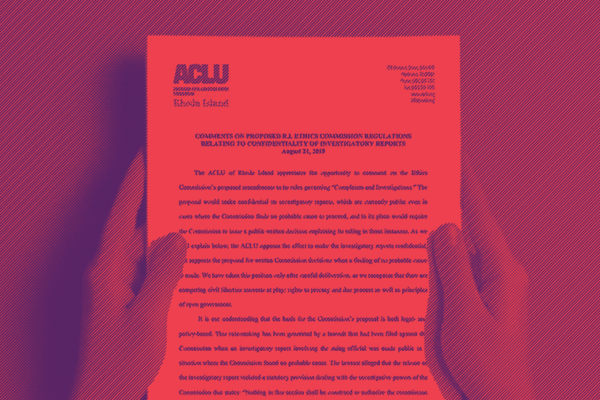The ACLU has appealed to the R.I. Supreme Court a Superior Court ruling that upheld the constitutionality of a problematic Providence housing ordinance that prohibits more than three “college students” from living together in certain areas of the city. In her February 2018 decision, Superior Court Judge Maureen Keough acknowledged “strong reservations concerning the effectiveness” of the ordinance, but ultimately ruled against the students and found the ordinance constitutional.
In 2016, ACLU of RI cooperating attorneys Jeffrey L. Levy and Charles D. Blackman filed the lawsuit on behalf of the owner and tenants – four Johnson & Wales undergraduate students – of a house in the Elmhurst section of Providence. The City ordinance makes it illegal for more than three “college students” to live together in a non-owner-occupied single family home in certain residential areas. The lawsuit argues that the ordinance is discriminatory and ineffective in its stated purpose of improving neighborhoods, and violates the plaintiffs’ rights to due process and equal protection of the law.
ACLU attorney Levy said today: “This case presents an important opportunity for the Supreme Court to show that Rhode Island’s Constitution reflects our values as a community. College students represent the future of our state, and we should not tolerate laws that discriminate against students or treat them as second-class citizens.”
“The Court’s decision clearly recognized the questionable utility of this ordinance. From our perspective, the ordinance’s failure to effectuate its goal demonstrates that it is arbitrary and unnecessarily infringes on individuals’ constitutional right to choose where they live, and with whom,” said Steven Brown, executive director of the ACLU of RI.
More information about the lawsuit, FHC v. City of Providence, is available here.


